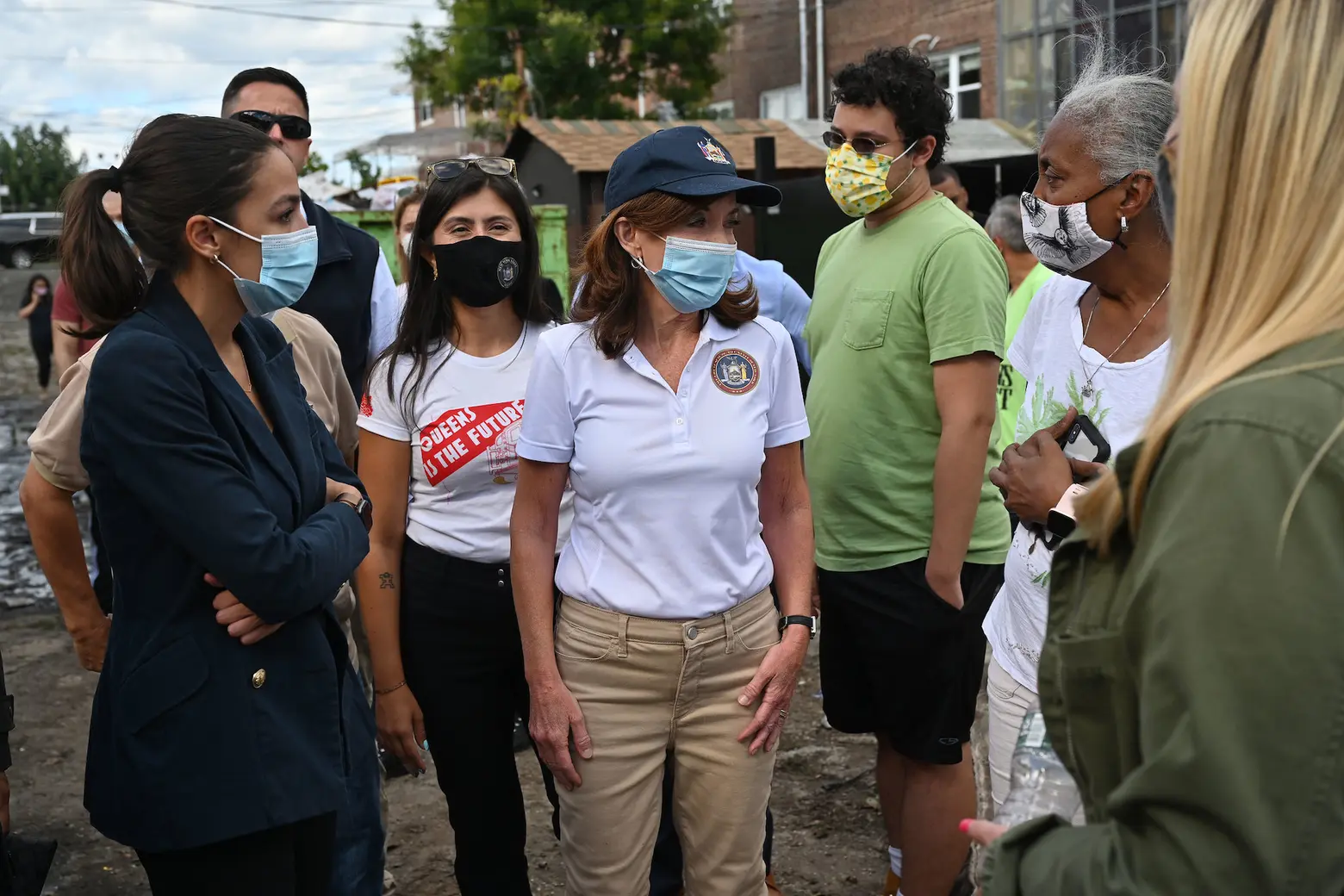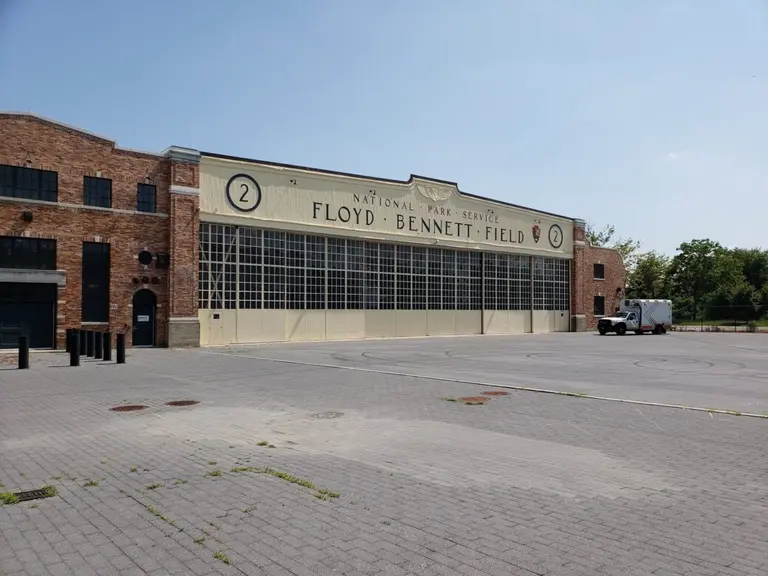Along with electing Hochul, New York voters approve $4.2B in climate spending

In 2021, Hochul toured several homes in the East Elmhurst section of Queens that flooded from torrential rains brought on by Hurricane Ida. Photo: Kevin P. Coughlin / Office of the Governor on Flickr
In addition to electing Gov. Kathy Hochul, voters in New York on Tuesday approved four new ballot measures that focus on fighting climate change and improving racial equity. Nearly 70 percent of voters said yes to the landmark “Clean Water, Clean Air, and Green Jobs Environmental Bond Act,” which gives the state permission to borrow $4.2 billion for funding projects that will protect New Yorkers from future extreme weather due to climate change. It’s the largest initiative for environmental protection in New York State history.
According to the New York Times, 69.1 percent of voters statewide approved the proposal, 28 percent disapproved, and 12 percent of voters didn’t decide on the proposal at all.
The Environmental Bond Act will include significant improvements to the state’s stormwater systems, provide funding for wastewater infrastructure upgrades, protect wetlands, and transition to zero-emission school buses, according to The City.
Now approved, the state comptroller is permitted to sell bonds to pay for $1.5 billion in projects to fight climate change like energy-efficient upgrades, lowering greenhouse gas emissions, and reducing pollution, as Gotham Gazette reported.
Under the act, $1.1 billion will be put towards flood risk mitigation, $650 million will be put towards water infrastructure, and another $650 million will be put towards land rehabilitation and conservation. The state will also have an additional $300 million to spend that has not been dedicated to a specific cause.
The three other measures that have been approved will enact these changes:
- Changing the city’s charter to include a statement of values that will create an equitable city for all New Yorkers.
- Mandate that city agencies create new racial equity plans every two years and that the city establishes a new Office of Racial Equity to manage the planning.
- Require the city government to develop a new way of calculating the “true cost of living” without using metrics like public assistance as income. This policy measure builds upon recent news that New York City’s area median income set by the U.S. Department of Housing and Urban Development (HUD) is “wildly out of sync” with the actual earnings of New Yorkers.
All of the approved policy measures take effect immediately.
Proposals 2, 3, and 4 on the ballot were proposed by former Mayor Bill de Blasio’s Racial Justice Commission, which was formed in response to the nationwide protests against racism and police brutality in 2020.
RELATED:



























